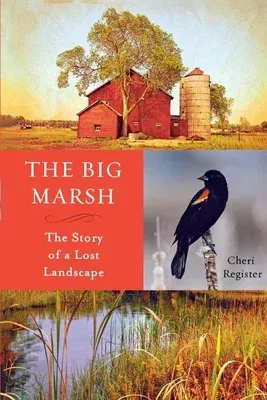Under the corn and soybean fields of southern Minnesota lies the memory
of vast, age-old wetlands, drained away over the last 130 years in the
name of agricultural progress. But not everyone saw wetlands as
wasteland. Before 1900, Freeborn County's Big Marsh provided a wealth of
resources for the neighboring communities. Families hunted its immense
flocks of migrating waterfowl, fished its waters, trapped muskrats and
mink, and harvested wood and medicinal plants. As farmland prices rose,
however, the value of the land under the water became more attractive to
people with capital. While residents fought bitterly, powerful outside
investors overrode local opposition and found a way to drain 18,000
acres of wetland at public expense.
Author Cheri Register stumbled upon her great-grandfather's scathing
critique of the draining and was intrigued. Following the clues he left,
she uncovers the stories of life on the Big Marsh and of the "connivers"
who plotted its end: the Minneapolis land developer, his local fixer, an
Illinois banker, and the lovelorn local lawyer who did their footwork.
The Big Marsh, an environmental history told from a personal point of
view, shows the enduring value of wild places and the importance of the
fight to preserve them, both then and now.

